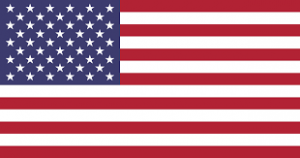“As a single footstep will not make a path on the earth, so a single thought will not make a pathway in the mind. To make a deep physical path, we walk again and again. To make a deep mental path, we must think over and over the kind of thoughts we wish to dominate our lives.”
– Henry David Thoreau
The following essay, written and published 30 years ago, is reprinted pretty much exactly as it appears in print (I fixed a few minor typographical errors and I kept the original style though my writing style has changed over three decades, but I’m proud to share this essay from my archives … especially on Super Tuesday and during this presidential election season)
Winning Essays … from the US Congressional Record 1986
“Mr. Speaker, I recently conducted my annual Sixth District Congressional Essay Contest for junior and senior high school students in my district, and I am very pleased to announce the winners today. The first place winner in the 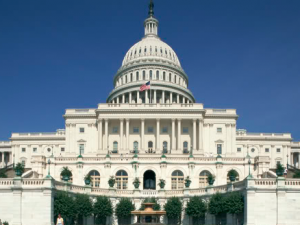 senior high category is Michael Lubelfeld, a resident of Des Plaines, who attends Maine Township High School East in Park Ridge. I congratulate … Mr. Lubelfeld for [his] outstanding essay, which is included in the Record following my statement. … I’m most pleased to share the winning essay with my colleagues.”
senior high category is Michael Lubelfeld, a resident of Des Plaines, who attends Maine Township High School East in Park Ridge. I congratulate … Mr. Lubelfeld for [his] outstanding essay, which is included in the Record following my statement. … I’m most pleased to share the winning essay with my colleagues.”
From the late Hon. Henry Hyde of Illinois in the House of Representatives
Published in Volume 132, Washington, Thursday, April 17, 1986, No.48 – Congressional Record, Page E1249
The Europeanization of America by Michael Lubelfeld
Our world is diverse in many ways, especially the way in which we govern ourselves. The government of the United States of America has grown and changed throughout the years in many different areas, but its basic foundation has stayed the same: the United States Constitution. The United States, with its republican form of government, has been governed by that document for over two hundred years. Other countries, for example, the democratic countries of Israel, Canada, Japan and those in western Europe, also have constitutions, but they have parliamentary governments. This paper will focus on the differences in democracy between the parliamentary system and the United States system.
Parliamentary government is set up somewhat like the United States government. Both types of government consist of three branches of 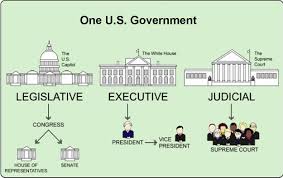 government: the executive, legislative and judicial. The difference between the two types of government is in how each branch carries out its various duties. Although both types of government are structurally similar, theoretical differences do exist.
government: the executive, legislative and judicial. The difference between the two types of government is in how each branch carries out its various duties. Although both types of government are structurally similar, theoretical differences do exist.
In the parliamentary system, the executive branch of government consists of the Prime Minister and the cabinet. The Prime Minister is the head of government and also head of the political party that he belongs to. The head of state is a largely ceremonial position. The head of state in the parliamentary system is comparable to the Vice-President in the United States.
In many of these countries, the Prime Minister is chosen by the head of state. The Prime Minister is not directly elected by the people. The person holding that honored position is selected by the political party in control of the government. The Legislative branch of a Parliamentary government, also similar to the United States, usually has bicameral. In England, the upper house is not elected by the people, but rather is controlled by families that have had ancestors who made a notable contribution to Britain. Knighthood and feudal tradition still provide a basis of operation among the members of the upper house. Our upper house, somewhat more aloof than the House politically, still is based on popular government rather than hereditary rule. However, in almost all of these governments, the lower house members are elected directly by the people.
One exception to a bicameral legislature is Israel. In Israel, its Legislative body, the Knesset, is unicameral. The Knesset is directly elected by secret ballot by the people of Israel.
The Judicial systems in these governments are also similar. Both Parliamentary and United States Judicial systems consist of inferior and superior courts. A significant difference, though, is that the United States Supreme Court has the power of judicial review. This means that the Supreme Court can determine that actions by the other branches of government are unconstitutional, thereby null and void. The House of Lords in Britain serves as the equivalent to our Supreme Court.
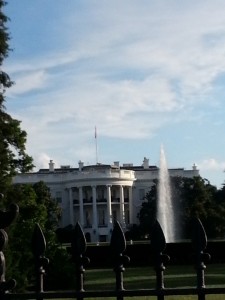
In the United States, the President and Vice-President are elected indirectly by the Electoral College. The legislative branch, which consists of two houses, is elected directly by the people.
A unique quality of the United States government is its system of checks and balances. This system allows all three branches to work separately, but always able to check one of the others’ work and therefore maintain a balance of power within the government. This system is not used in the Parliamentary governments.
The United States government is much more stable than the parliamentary form. Prime Ministers may lose control of the government should parliament fail to provide a vote of confidence in their leadership during a national crisis. A prime minister may hold power for twenty-four hours, twenty-four days or, after several elections, twenty-four years. In other words, a Prime Minister’s power to rule depends on constant approval of their policies by Parliament. On the other hand, in the United States, regardless of crisis, the President is in control, still able to exercise his constitutional duties. This system provides stability, greater flexibility, and a more secure government. Just prior to World War II, the government of
Neville Chamberlain (in Britain) had a policy of appeasement towards Hitler. Soon after, Hitler was dominating all of Europe. German bombs fell on Britain and so did Chamberlain’s government. Chamberlain failed to obtain a vote of confidence from Parliament and he was out of office. Whereas, if President Roosevelt made a questionable decision, there would not have been a new government, but the President would have had a chance to correct his mistake. Recently in England Prime Minister Thatcher’s government was  faced with a very major problem, the nation’s coal miners were on strike. Mrs. Thatcher, had she not received support of parliament, could have lost her power from something as mundane as a coal miners’ strike. In the United States, with our more stable system, if there is a strike that shuts down a significant supply of important resources to the American people, the government could not collapse – no matter how serious the problem.
faced with a very major problem, the nation’s coal miners were on strike. Mrs. Thatcher, had she not received support of parliament, could have lost her power from something as mundane as a coal miners’ strike. In the United States, with our more stable system, if there is a strike that shuts down a significant supply of important resources to the American people, the government could not collapse – no matter how serious the problem.
Another interesting difference between these two governments, is the role of political parties. Political parties play key roles in government. In the United States, there are two major parties, with many other minor parties. The citizens of the United States elect the people running for office directly regardless of what party affiliation they have. Whereas in a parliamentary system, the party plays a much larger role. In effect, with the parliamentary system, political parties, not people, are what is being elected. The people elect a party in the lower house (of Legislature) and whichever party receives 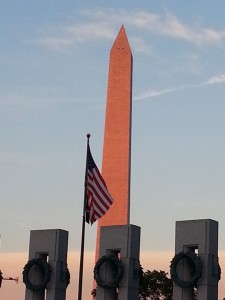 the majority of votes, is called the majority party. The prime minister is then selected by the majority party. When the prime minister’s party loses majority, the government is dissolved.
the majority of votes, is called the majority party. The prime minister is then selected by the majority party. When the prime minister’s party loses majority, the government is dissolved.
A very common question is this: should the United States of America adopt a parliamentary form of government? The United States government is entirely elected by the people, to govern for the people, so the people’s direct wishes can and will be carried out at every level of government. The parliamentary government evolved from the old fashioned ideas of monarchy. A parliamentary system would contradict the principles of the Unites States’ constitutional government. The American people pride themselves in the form of government that they have. In the parliamentary form the upper house is made up of elite appointed or hereditary officials who can do whatever they wish and whatever their parties wish. However, in this country, the legislators of both houses represent all of the wishes and ideas of the people who they represent.
Parliamentary government in the United States would be detrimental and contradictory to the principles of the Constitution. The Constitution was set up so that the government would always have to respond to the people’s’ needs through the check and balance system. The citizens of the United States of America are very unique and diverse and they have learned to accept and respect this form of government that has been around since the independence of the country. Freedom to elect all public officials, to question policies and to change the policies is every American’s right. American people would not accept the idea of the Parliamentary government.
